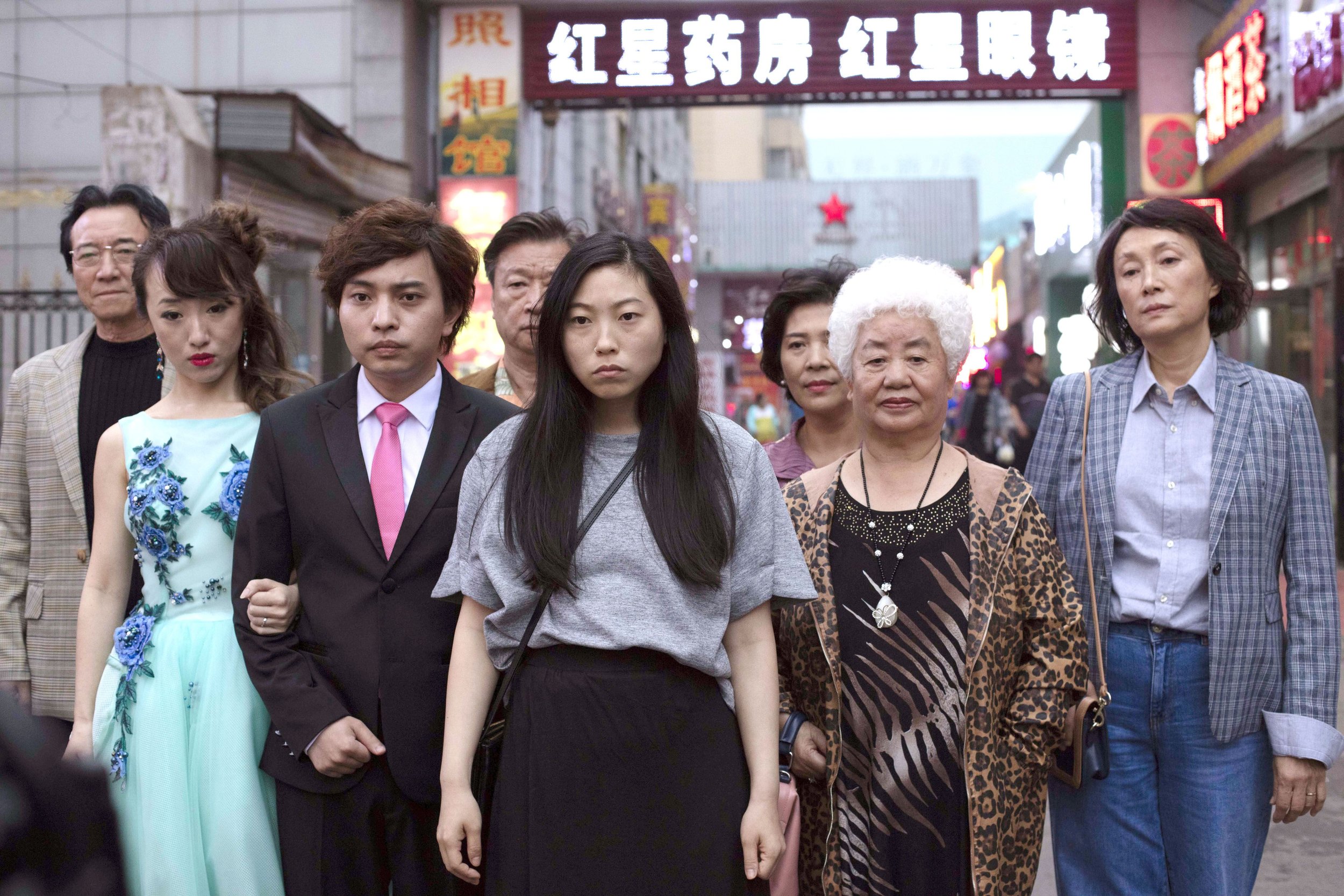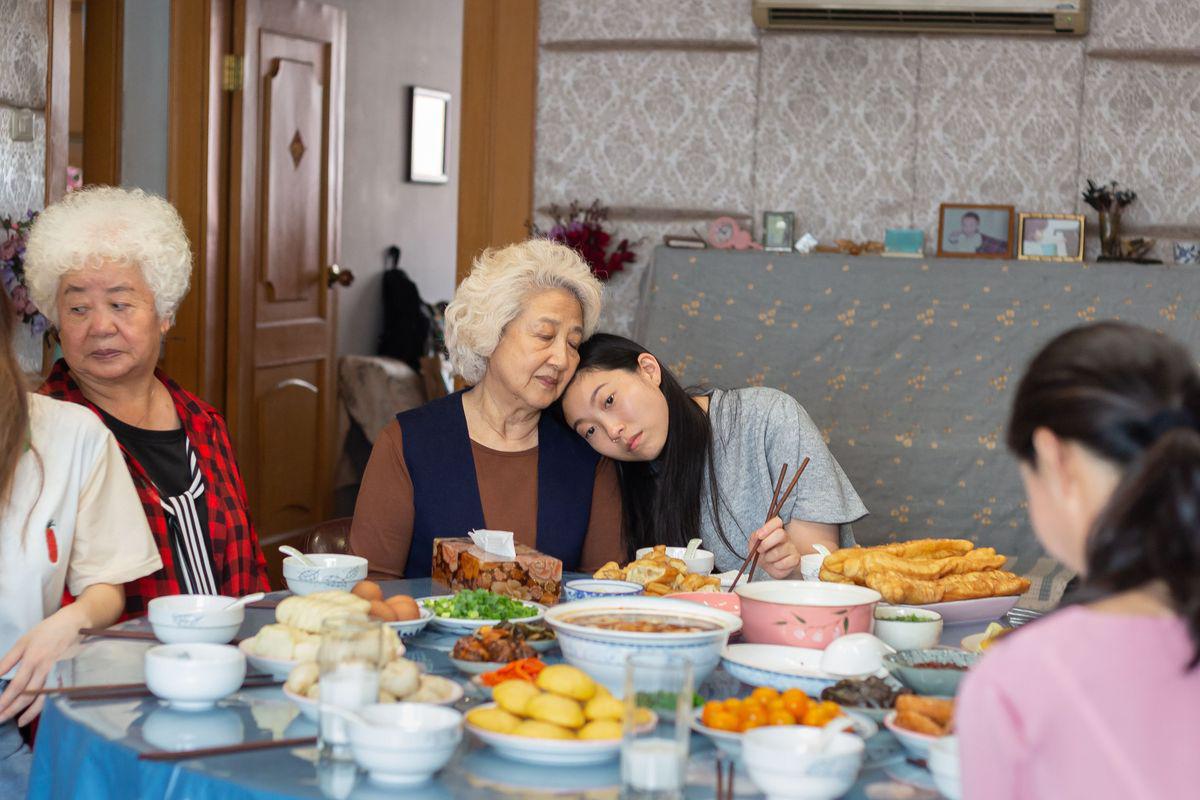REVIEW: 'The Farewell': Say hello to the Asian-American experience
Awkwafina (centre) stars in The Farewell, written and directed by Lulu Wang.
There are tons of films describing the FOB Asian experience in America, or the white American experience in Asia. But what about the Asian experience in Asia?
The Farewell is director Lulu Wang’s second feature film, a semi-autobiographical film about a struggling young Chinese-American, Billi (Awkwafina, in a strong performance), who returns to her ancestral home in Changchun to visit her grandmother, who has been diagnosed with late-stage lung cancer and doesn’t have much time to live. The twist: the entire family has kept the diagnosis a secret from their grandmother, going as far as to doctor her medical tests. (Pun intended). This doesn’t sit well with Billi, who, in her all-American wholesomeness, believes that her grandmother has a right to know, and that anything short of telling the clear truth is less than honest.
Despite going back to her roots, Billi is the outsider; she’s unfamiliar with some members of her extended family, and also has to grapple with her own identity through small conversations with her broken Chinese. The struggle is real; not only is she hounded by questions about her private life (“are you married yet?”), she also has to put on a brave face to keep the family secret because – as her own family members keep pointing out – she’s far too emotional to be able to hide anything. It’s a low-key shot at “western” values that place more emphasis on being open and free-speaking, compared to stoicism as the more widely-accepted ideal in most Asian cultures.
Billi has a tender relationship with her grandmother Nai Nai (Shuzhen Zhao)
Through endless meals and cramped rooms, what is uncovered is a series of relatively harmless lies told in the name of tradition and saving face, an Asian custom akin to the pursuit of pride and prestige – if not already having plenty of it – and widely accepted as an honest endeavour. Billi’s cousin, Hao Hao, is engaged to marry a Japanese girl who he’s been dating for just three months, but the family agrees to tell friends that they’ve been dating for a year to avoid rumours of an unintended pregnancy. It’s revealed years after the grandfather’s death that he had been a smoker until the day he died, even though the grandmother thought he had quit for many years.
Through small snippets of dialogue and family dinners we see the family slowly reveal more of these lies, and no one is immune. The film constantly makes reference to how many years Billi’s father and uncle have spent living abroad, and lament that the grandchildren can’t speak Mandarin. Billi’s not perfect, either, withholding information from her parents when convenient to do so. Billi’s millennial-western-liberal worldview renders all of this unacceptable, but she’s constantly reminded that the family remains close-knit in spite of them. Billi’s father and uncle share drinks, and Billi speaks Mandarin almost the entire time.
It’s an indie drama about belonging, moments of regret and enjoying the company of those who had been forgotten. It’s about Billi coming to terms with her identity and morphing into someone who has multiple dimensions, ultimately showcasing that culture or identity doesn’t have a specific face or colour. Barry Jenkins, who is Wang’s partner, explores similar themes in his film Moonlight, so they’re extremely relatable to a very specific demographic (black gays vs. Asian-Americans). There’s also a familiar sense of texture, from its shots of luscious Chinese food in the foreground to the intricate fabrics on the wall.
Wang’s strength is here, creating an authentic Asian experience for North American audiences without a character who’s clueless. Billi is able to navigate all the nuances of her own culture without much outside help, when most times Asian cultures are viewed through oblivious eyes. This film wouldn’t have been made without an Asian and/or female director behind the camera, because it would’ve lost all nuance. It’s (thankfully) not culture shock that Billi goes through, but a classic internal struggle about doing the things we should or shouldn’t do.
The Farewell gets three stars out of four.



